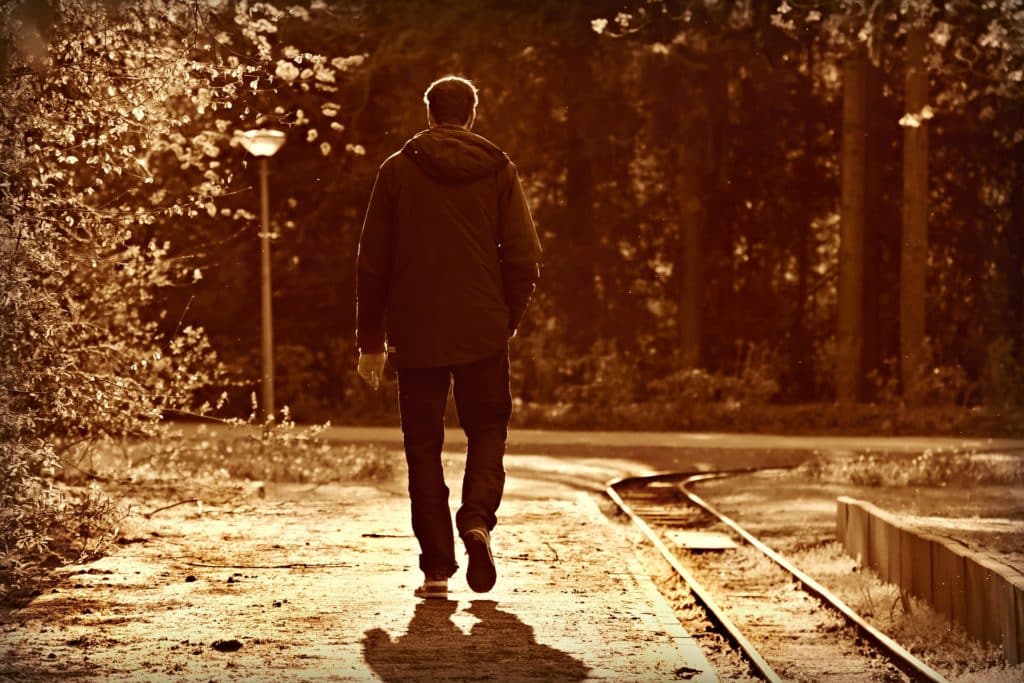Loneliness. Even the word itself makes you shrink away; it’s a negative place that no one wants to be. It conjures up an image of an old, forgotten person, isolated from society and yet recent statistics have shown it’s the much younger generation who make up the highest proportion of the 24% of the population who reported feeling lonely.
Many circumstances can heighten people’s experience of loneliness such as limiting health conditions, living in a new area, and being single, whether through divorce, separation, or being widowed.
Perhaps surprisingly, instances of loneliness are less commonly reported in the over 75s, and the Office for National Statistics suggests a number of explanations for this. Firstly, that through the experience of significant events and life transitions, they have become more resilient, but the second explanation, from research conducted in 2015, suggested that loneliness related to an increased mortality risk of 26%.
Simply put, those who are lonelier live shorter lives and are less represented in the older population.
So, what can you do to combat loneliness?
Claire Hughes from Northern Ireland matchmaking agency Soiree Society explained: “Being alone does not always mean you feel lonely, and many people who are in happy relationships experience loneliness, so the first step is to try and understand what is making you that way.
“Isolation is a massive influence, particularly if it isn’t through choice. Factors such as unemployment, disability, and being physically isolated in a remote location can all be issues, but you can be surrounded by people and still experience loneliness if you feel they don’t understand or care for you.
“Loneliness is your body’s way of telling you that you need more social contact, just like thirst is a signal that you need a drink, so the easiest way to alleviate that feeling is to meet more people. Those with mental ill-health, such as anxiety, might find this incredibly challenging, so it’s important to do it in a way that you’re comfortable with.”
In a world where technology makes everyone more accessible, it can also isolate us, but conversation is a wonderful way to interact with people wherever they are. When you’re feeling lonely, particularly if it’s having a negative effect on your self-worth, it can be easy to think that no one cares because they haven’t been in touch. More often than not, that isn’t the case. So, reach out and strike up a conversation, whether it’s by messenger, or text, or a good old-fashioned chat on the phone.
If you don’t have people to talk to then making new connections might be the way forward. Again, it’s important to do this in a safe way that you feel comfortable with. Search online for things that interest you and see if there’s a local group who meet up. Book clubs, writer’s groups, and exercise classes are all excellent ways to meet new people.
“Another great way to widen your social circle is by volunteering” said Claire, adding: “Charities are often crying out for people to help them deliver their services and you get the satisfaction from helping others as well as the contact you need.”
But if meeting new people in the real world is just a step too far out of your comfort zone, or you have limited mobility, then there are plenty of online communities you can be a part of from the comfort of your own home. These tend to be a very supportive environment and can lead to rewarding friendships. Just finding like-minded people who know what it’s like to feel lonely can offer relief.
“One of the most important things in combating loneliness is being comfortable with meeting new people. If you push yourself it could have great results, but it could also put you off doing new things. Perhaps in the first instance, join a class where you are doing an activity, so the focus is on that and not on talking to people. Take your time” said Claire.
In the research done by the Office for National Statistics, one of the biggest groups of people affected by loneliness were those who were single, either through choice or circumstance.
For those who want to find a partner, the first step is to widen your social circle, following some of the strategies mentioned before; join a class, learn a new skill, or volunteer to find new ways of interacting with more people.
Finding those people who are also looking for a genuine long-term relationship can be challenging. Again, thanks to technology, there’s a wealth of dating apps available at the push of a button, however users often report that many people are more interested in casual flings or one-night stands, than a loving relationship which could lead to marriage and a family.
“Turning to the professionals might be a solution to this for many people” said Claire.
“Matchmaking dating agencies work with you to offer a personal service which is tailored to your requirements. The idea for the Soiree Society NI came from a conversation with a 35-year-old woman who highlighted how difficult it was to find a man interested in the same long-term goals that she had, and this was a common problem for unattached like-minded people.”
The now award-winning matchmaking dating agency was born to facilitate introductions for people looking for romance, marriage, or even companionship.
If you would like more details on what Soirée Society NI can do for you visit their webpage www.soireesocietyni.co.uk
Whichever way you decide to fight feelings of loneliness, take action today and reach out. The first step starts with you.

